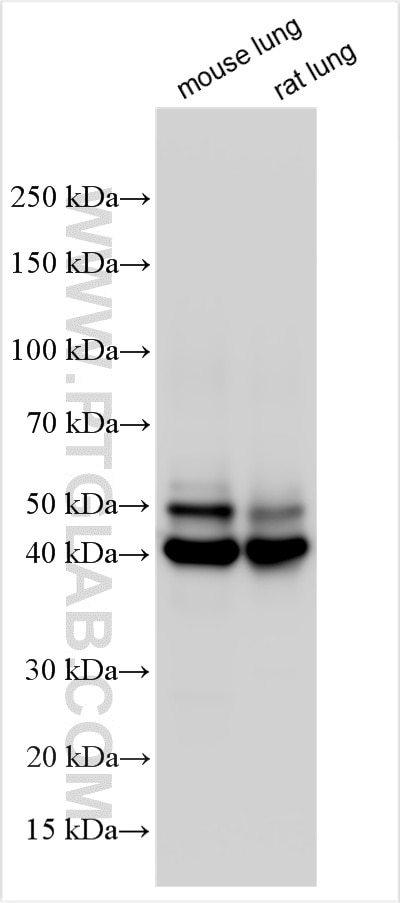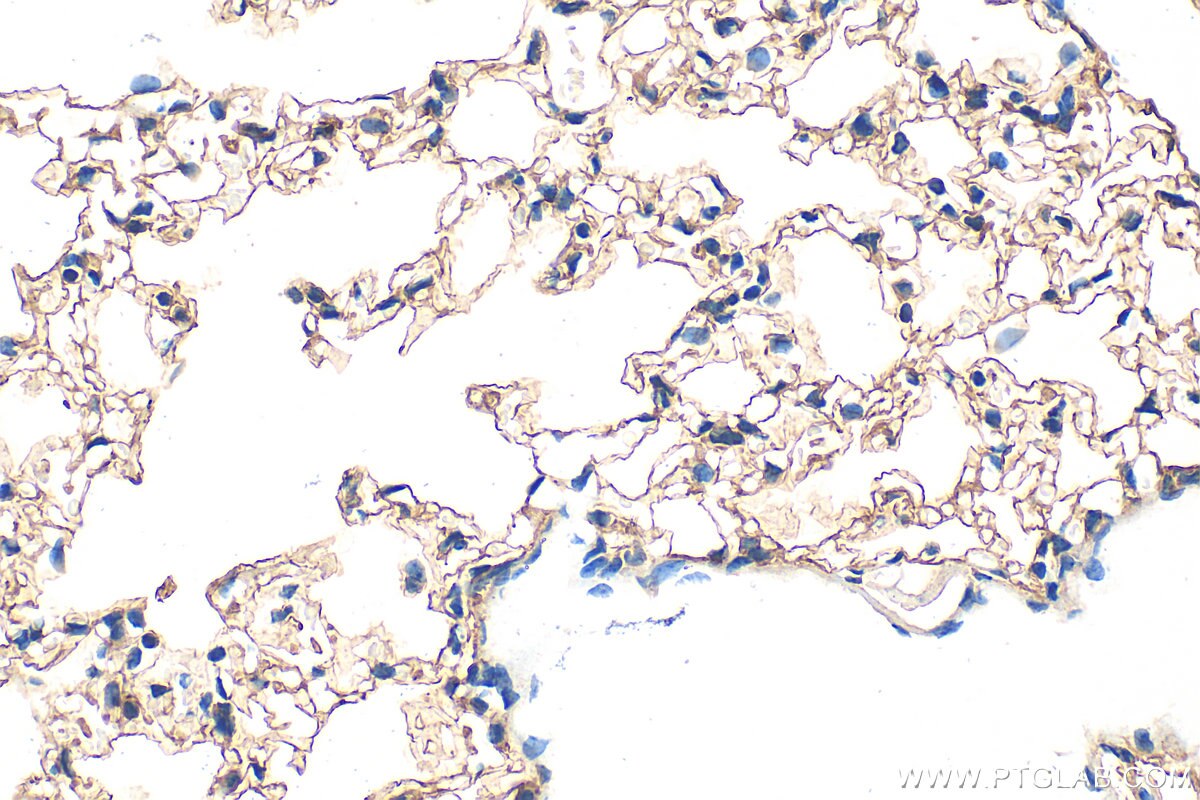Tested Applications
| Positive WB detected in | mouse lung tissue, rat lung tissue |
| Positive IHC detected in | mouse lung tissue Note: suggested antigen retrieval with TE buffer pH 9.0; (*) Alternatively, antigen retrieval may be performed with citrate buffer pH 6.0 |
Recommended dilution
| Application | Dilution |
|---|---|
| Western Blot (WB) | WB : 1:5000-1:50000 |
| Immunohistochemistry (IHC) | IHC : 1:250-1:1000 |
| It is recommended that this reagent should be titrated in each testing system to obtain optimal results. | |
| Sample-dependent, Check data in validation data gallery. | |
Product Information
31122-1-AP targets RAGE in WB, IHC, ELISA applications and shows reactivity with mouse, rat samples.
| Tested Reactivity | mouse, rat |
| Host / Isotype | Rabbit / IgG |
| Class | Polyclonal |
| Type | Antibody |
| Immunogen | RAGE fusion protein Eg0873 Predict reactive species |
| Full Name | advanced glycosylation end product-specific receptor |
| Calculated Molecular Weight | 43 kDa |
| Observed Molecular Weight | 42-55 kDa |
| GenBank Accession Number | NM_007425.3 |
| Gene Symbol | Ager |
| Gene ID (NCBI) | 11596 |
| Conjugate | Unconjugated |
| Form | Liquid |
| Purification Method | Antigen affinity purification |
| UNIPROT ID | Q62151-1 |
| Storage Buffer | PBS with 0.02% sodium azide and 50% glycerol, pH 7.3. |
| Storage Conditions | Store at -20°C. Stable for one year after shipment. Aliquoting is unnecessary for -20oC storage. 20ul sizes contain 0.1% BSA. |
Background Information
The receptor for advanced glycation end products (RAGE) is a cell surface transmembrane multiligand receptor, also known as Ager, is a multiligand member of the immunoglobulin superfamily. It has many isoforms and is predominantly expressed in the lung. AGER expression is upregulated in many diseases such as Alzheimer's disease, diabetes mellitus, atherosclerosis, and rheumatoid arthritis (PMID: 35099614).
Protocols
| Product Specific Protocols | |
|---|---|
| WB protocol for RAGE antibody 31122-1-AP | Download protocol |
| IHC protocol for RAGE antibody 31122-1-AP | Download protocol |
| Standard Protocols | |
|---|---|
| Click here to view our Standard Protocols |





